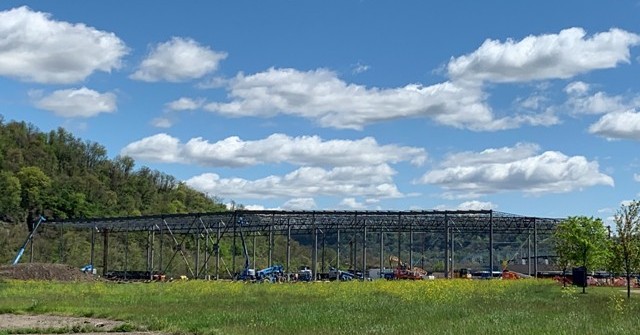This morning’s April jobs report was both stunning and completely expected. The headline – that 20.5 million fewer persons were employed in April – is unprecedented in documented U.S. history. At the same time, the Bureau of Labor Statistics’ report was in line with the trend from the weekly unemployment claims filed during the past eight weeks. The unemployment rate of 14.7% was slightly lower than what was forecasted by economists.
The data confirms that the U.S. economy has a mountain to climb before recovering. Anyone who gives you a forecast of how that recovery will go is a fool. There is no playbook for this kind of recession. Virtually none of the lessons from 9/11, the financial crisis, or the Great Depression for that matter, can be applied directly to the current situation. Government action has been swift but more time is required to judge if the quick action was an effective backstop or a Band-Aid on a bullet wound. There are some big trends beginning to appear, however. None can provide certainty about the near-term future but any clarity is welcome.
1) Government action will not restart the economy. Reopening business (more accurately, removing shelter at home restrictions) is different from restarting the economy. Evidence from China, Italy, Texas, Denmark, and Sweden points to a consumer who won’t return to consuming just because stores are open. Sweden has been held up as a model of remaining “normal” while the pandemic raged. Swedish consumers did not spend normally, reducing personal consumption by roughly 80% since March. It’s going to take a medical solution to make consumers comfortable that there is little or no risk in returning to normal activity.
2) China’s role in the world will change. As the U.S. relinquishes its leadership role in many global organizations, China has stepped in to increase its investment. Chinese companies, backed by its government, are poised to swoop in to buy struggling European auto makers and international airlines at pennies on the dollar. At the same time, China’s role in the global supply chain has made thousands of manufacturers vulnerable. Re-shoring the supply chain will happen. If it happens to a large degree, much of China’s manufacturing and its burgeoning middle class will be decimated. Negative sentiment about China’s lack of information and disinformation about the COVID-19 outbreak in Wuhan is fueling a backlash that will impact its trade. Whatever trajectory China was on in the global scene will be altered going forward.
3) The pandemic will accelerate the trend that was rewarding scale. Bigger companies will get bigger. There will be an acceleration of mergers and acquisitions once financing becomes more certain. Some big corporations will fail and their customers will make big competitors bigger.
For the Pittsburgh economy, some of these emerging macroeconomic trends could have some pretty specific impacts. As a center of medical research, Pittsburgh could get a boost if a treatment or vaccine originates here or can be replicated here. Will the disruption of China’s global role dim the flow of students and researchers to CMU and Pitt? Will the pandemic limit the number of foreign students overall to the economic drivers of our region. Does a tech giant buy struggling auto companies or consumer appliance makers and alter the arc of autonomous vehicle or artificial intelligence research in Pittsburgh?
On March 30 I posted that you shouldn’t trust articles that were heavy on “could,” “might,” or “may.” The word “could” only appears twice in this post but I’d still caution you from putting much stock in predictions at this point, especially those I make.
Construction returned to work this week in PA and the reports are that it went fairly smoothly. The Shell cracker project is a notable exception to the restart of work, although more workers are expected on site next week. There is no word from Shell or Great Arrow as to when a return for the 5,000-plus workers will occur.

In construction news, Arco Murray is underway on the $20 million PurePenn expansion at RIDC McKeesport. Momentum Inc. has started work on the new $2.8 million Armco Federal Credit Union Hub Branch in Mars. Haemonetics selected Al. Neyer to build-out its new $24 million lab in Findlay Township. AIMS Construction was awarded the $1.9 million UPMC St. Margaret’s Hospital roof and air handler replacement. MBM Contracting is working on $4 million-plus renovations at Jefferson Medical Arts Building and South Hills Medical Building in Jefferson Hills.
